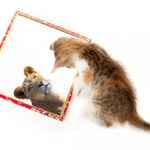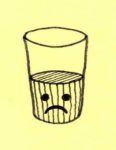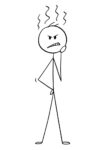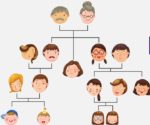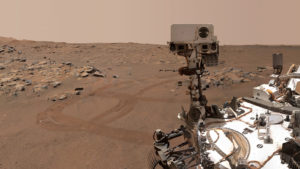Tomorrow’s Test: See above. Preview after Period 4.
Checking SMYKs.
Much Madness is divinest Sense–
To a discerning Eye–
Much Sense–the starkest Madness–
‘Tis the Majority
In this, as All, prevail–
Assent–and you are sane–
Demur–you’re straightway dangerous–
And handled with a Chain–
“Warm Up, 3/6.”
- Emily Dickinson felt that “the Majority” always prevailed on the question of…
- Poem #435 says that if a person looked very carefully…
- Poem #435 says that if you disagree with the majority…
- It turns out that the job a Martian has to have to welcome Earth men is…
Debrief Test #23. Hrrmmm.
“Agreement Pretest.” Write the ANSWER. click the letter.
- Either your teacher or your pet llama ___ what you need to help you flourish. a) teacher are b) either have c) either has d) llama have e) teacher has f) NOTA
- Both of the brothers ____ pepperoni pizza. a) brothers love b) both love c) both loves d) brothers loves e) NOTA
- The killer llama, among the largest predators, ____to be as long as twenty-seven feet. a) predators were b) llama grows c) predators grow d) predators grows e) llama is f) NOTA
- One of the most annoying students ____ sentenced to hard labor at the llama academy. a) one was b) students were c) one were d) students was e) NOTA
- Ten dollars ____ the price of the movie. a) ten are b) dollars are c) price are d) price is e) NOTA
- ____ the llama or the flying lizard been to the Moon yet? a) llama, lizard has b) llama, lizard have c) llama, lizard do d) llama, lizard does e) NOTA
- _____ Jimmy and his mom want to come with us to the llama party? a) Jimmy, mom do b) mom does c) Jimmy does d) Jimmy, does e) Jimmy, mom does f) NOTA
- The tests, which we have on Friday, ___ not that difficult if you do your classwork and study. a) Friday is b) tests are c) tests was d) Friday was e) tests is f) NOTA
- Neither the trumpet player nor the drummer _____ to our school. a) trumpet player, drummer are b) trumpet player, drummer is c) neither go d) neither goes e) NOTA
- The blonde llama, like the ones in the movie, ___ very rare and valuable. a) ones are b) ones is c) movie is d) llama is e) llama are f) NOTA
“Vocab, 3/6.” Lots of repeats.
blasphemy, caper, visage, lineage, delusion, propagate, naive, aesthetic, cynical, peevish
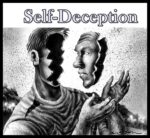
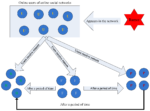

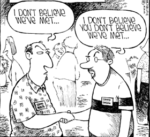
- _____
- _____ (Not lineage)
- _____
- _____ (not peevish)
- The wind made the old newspapers _____ across the empty streets.
- Some people say that it is only a ______that there is life after death…
- …They think that we are being _____ to think that we are anything but worm food…
- …But someone who is deeply religious might say that kind of talk is ______.
- There are the _____(s) of four presidents on Mount Rushmore.
- Because of the Martian’s telepathy, the Earth men were under the _______ that their loved ones had come back to life.
- The root of this word is a part of the word itself. _____ (duh)
- The root of this word meant “sight.” _____
- The root of this word was Greek for “dog” or “hound.” ______
“The Earth Men” Link for those at home: The Martian Chronicles. The story begins on page 22.
Questions on tomorrow’s test:
- Why does the story end with a “weather report”?
- “A shot rang out. Mr. Xxx fell.” a) exposition b) rising action c) inciting incident d) rising action e) climax f) falling action g) resolution
- “When the town people found the rocket at sunset, they wondered what it was. (p30) a) exposition b) rising action c) inciting incident d) rising action e) climax f) falling action g) resolution
- “That night it rained all night. The next day was fair and warm.” (p31) a) exposition b) rising action c) inciting incident d) rising action e) climax f) falling action g) resolution
MOVIE?
Giver Movie Ending.
- Which scenes from the movie would you use for the trailer? Why?
- What if we were making a “book trailer”? Would you use the same scenes? What would be different?
“Giver, 3/9.”
- Book or Movie? 3 Reasons why + Example for each.




